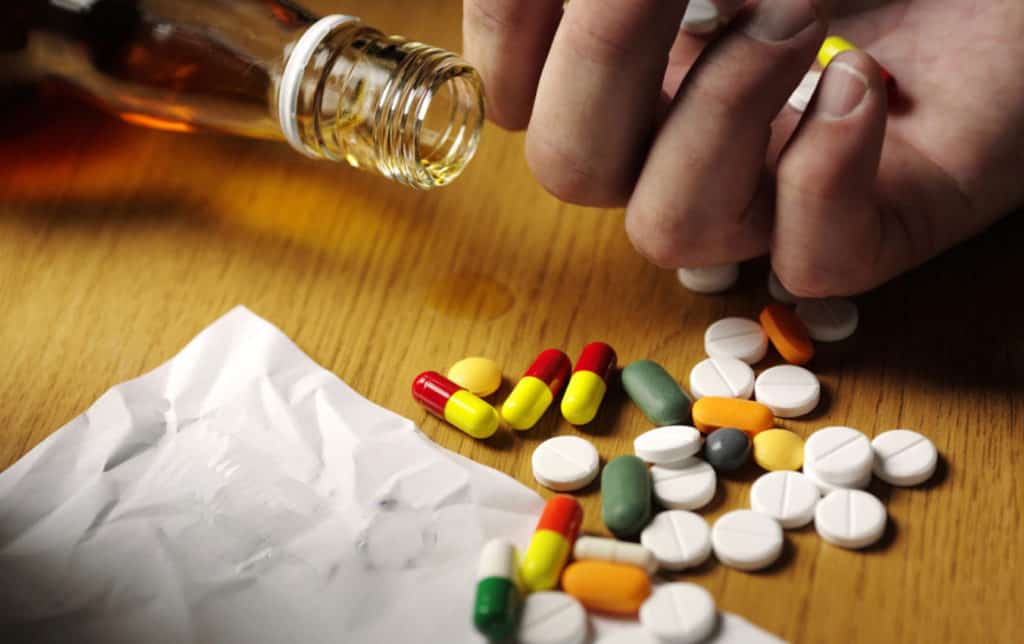What are Party Drugs? Adderall as a Party Drug
What are party drugs? Party favors drugs, can often mean many different sorts of party drugs used at a party. Thus, this question can be difficult to answer. Clearly, there is no one-type-drug answer, where the term “party drugs” encompasses a wide variety of substances. Generally speaking, however, party drugs are psychoactive drugs that are used primarily for recreational purposes.
In general, young adults use party drugs for one or more of the following reasons:
- To experience an altered reality.
- They want to stop worrying and “get out of their own heads.”
- In order to feel less inhibited and anxious in social situations.
- Because friends are using them, and they don’t want to be left out of the experience.
- As a way to self-medicate chronic or acute stress, trauma, depression, anxiety, or other mental health disorder.

Get Your Life Back
Find Hope & Recovery. Get Safe Comfortable Detox, Addiction Rehab & Dual Diagnosis High-Quality Care.
Hotline(844) 597-1011Party Drugs Pills
According to the National Institute on Drug Abuse, MDMA, also known as ecstasy and molly, is a synthetically produced drug that is intended to bring about feelings of energy, pleasure, warmth, and distortions in sensory and time perception in the user. MDMA increases the chemicals dopamine, norepinephrine, and serotonin in the brain.
Short-term effects on the body include nausea, muscle cramping, involuntary teeth clenching, blurred vision, chills, and sweating. This being said, the long-term effects of high doses of MDMA are much more serious. These include a loss of the body’s ability to regulate temperature resulting in possible liver, kidney, or heart failure, and an increased tendency to become involved in unsafe sexual behavior. As a result, this may create a higher chance for the user to contract HIV/AIDS or hepatitis.
Most Popular Party Drugs
Hallucinogens
Hallucinogens are drugs that offer users a “trip” that involves hallucinations — seeing or experiencing things that are not real. A young adult who takes these drugs at a party quickly becomes out of touch with reality, risking engaging in dangerous behaviors.
LSD
Lysergic acid diethylamide (LSD) has been a popular rave drug for decades. This drug is taken as a “strip,” which looks like a little piece of paper. The drug itself is “printed” onto the strip of material. Symptoms of LSD use include hallucinations, extreme trembling, and heart racing. Young adults often resort to using LSD slang to talk about the drug with peers. Some street names include “acid” and “L.”
Psychedelic Mushrooms
Psilocybin mushrooms are powerful, triggering drug-induced spiritual experiences and disordered perception. Even small doses can cause strong and unpredictable intoxication. They are usually eaten, but can be brewed in teas, and are often combined with other drugs. Nicknames for the drugs include “shrooms” and “magic mushrooms.”

Get Help. Get Better. Get Your Life Back.
Searching for Accredited Drug and Alcohol Rehab Centers Near You?
Even if you have failed previously and relapsed, or are in the middle of a difficult crisis, we stand ready to support you. Our trusted behavioral health specialists will not give up on you. When you feel ready or just want someone to speak to about therapy alternatives to change your life call us. Even if we cannot assist you, we will lead you to wherever you can get support. There is no obligation. Call our hotline today.
(844) 597-1011Cocaine
Cocaine is usually snorted as a powder, the effects of which can be profound. Visible signs of cocaine use include bursts of energy and talkativeness, which makes Cocaine a popular drug of choice for people at clubs or parties. Cocaine is referred to by different nicknames, the most popular of which are “coke” and “blow.”
Ecstasy
Ecstasy is among the most common drugs at clubs and parties. People turn to ecstasy because of the discreetness of the drug’s pill and capsule forms — in contrast to alcohol, which may be more difficult for someone to secretly consume in a public setting. Signs of ecstasy use include extreme happiness and friendliness, which can drive people into compromising situations. More serious risks include hallucinations and paranoia. People often refer to ecstasy as “E,” “X” or “molly.”
Stimulants
Because of their capacity to increase a user’s energy and focus, stimulants are very popular among partygoers. These drugs work by impacting certain parts of the brain that are involved with alertness. Popular types of stimulants include Adderall and Ritalin, two drugs prescribed for ADHD symptoms but often abused by people who seek out the drugs’ effects.
First-class Facilities & Amenities
World-class High-Quality Addiction & Mental Health Rehabilitation Treatment
Rehab Centers TourRenowned Addiction Centers. Serene Private Facilities. Inpatient rehab programs vary.
Addiction Helpline(844) 597-1011Proven recovery success experience, backed by a Team w/ History of:
15+
Years of Unified Experience
100s
5-Star Reviews Across Our Centers
10K
Recovery Success Stories Across Our Network
- Low Patient to Therapist Ratio
- Onsite Medical Detox Center
- Comprehensive Dual-Diagnosis Treatment
- Complimentary Family & Alumni Programs
- Coaching, Recovery & Personal Development Events
What is Adderall? What is in Adderall? How do I know if I’m addicted to Adderall?
Adderall addiction is more likely to develop in teens and young adults because of its effects of increasing dopamine and norepinephrine levels in the central nervous system (CNS). Norepinephrine affects how the brain responds to events, particularly how it pays attention and the speed with which it reacts to outside stimuli.
Dopamine, the body’s “feel-good” chemical, creates a rewarding effect. Although dopamine occurs naturally, drugs like Adderall produce unnaturally high levels of it. This can cause users to come back for more.
Adderall and other amphetamines are known as “brain boosters” and “study drugs” because some students believe that these drugs help improve cognition. Adderall doesn’t make a person smarter, but it can increase the perception and feeling of being smarter by improving motivation. Also, It can cause side effects like hallucinations, epilepsy, psychosis, and malnutrition.
The prolonged use of Adderall can lead to addiction and its associated risks. Contrary to what many teens — and even some parents — believe about abusing Adderall, amphetamine is a highly addictive drug.
How do I know if I’m addicted to Adderall?
Prescription stimulants are usually safe for those they are prescribed to. But even people under the supervision of a doctor are at risk of developing an Adderall addiction. Those who use Adderall without medical assistance to get high or fuel all-night study sessions are at risk of developing an addiction.
Due to the likelihood of Adderall addiction, the U.S. government designated Adderall to the same drug classification as cocaine and methamphetamine.
Adderall Addiction. How fast can you become addicted to Adderall?
Adderall Addiction is a well-known addiction in America. However, the fact that a prescription medication that is used to treat attention deficit hyperactivity disorder and narcolepsy can cause a severe addiction may be slightly surprising nonetheless.
Despite being a prescription drug, in some cases, Adderall is abused by users who don’t have a prescription for the medication because it contains amphetamine, a potent stimulant. Adderall abuse falls within the stimulant use disorder category in the Diagnostic and Statistical Manual of Mental Disorders, 5th edition (DSM-5).
There was a clinical differentiation between physical dependence and addiction. However, DSM-5 has joined these concepts together under the rubric of substance use disorders (with each of the nine drug categories having its own use disorder).
For diagnostic purposes, a person has a substance use disorder, from mild to severe, depending on the number of symptoms they experience. Per the DSM-5, there are 11 listed symptoms. The following is a sample of the symptoms that can emerge as a result of a stimulant use disorder:
- Continuing to abuse Adderall even though it is causing physical and psychological problems
- Shirking responsibilities related to core spheres of life, such as family, work, or school, to abuse Adderall
- Taking higher doses of Adderall or taking it too frequently to get a high from it
- Having to consume more Adderall to get a similar high to that experienced with earlier use
- Withdrawal symptoms when the familiar amount of Adderall consumption drops
The group of individuals who abuse Adderall can be subdivided into at least two groups. Some obtained this drug as a result of having a medical condition for which it is indicated. This group typically will not develop a substance use disorder, provided they follow the prescribing doctor’s orders.
Some do not have a medical need for Adderall and, through different means, obtain pills and abuse them to get high. The format of Adderall pills is often manipulated to potentiate the high. For instance, individuals who abuse Adderall may crush the pills and snort them, to deliver the stimulant faster to the brain and get a more intense euphoric rush.
Adderall as a Party Drug (Adderall Party Drug)
Is Adderall a party drug? Adderall is a prescription drug used to treat ADHD and narcolepsy. It is a stimulant that can help people focus and stay awake, but some people use Adderall for partying. Adderall abuse can lead to addiction and other health problems. If you or someone you know is abusing Adderall or hosting an “Adderall party”, it’s important for them to get help. There are treatment options available for addiction and other health problems caused by Adderall abuse.
World-class, Accredited, 5-Star Reviewed, Effective Addiction & Mental Health Programs. Complete Behavioral Health Inpatient Rehab, Detox plus Co-occuring Disorders Therapy.
CALL(844) 597-1011End the Addiction Pain. End the Emotional Rollercoaster. Get Your Life Back. Start Drug, Alcohol & Dual Diagnosis Mental Health Treatment Now. Get Free, No-obligation Guidance by Substance Abuse Specialists Who Understand Addiction & Mental Health Recovery & Know How to Help.
Adderall Withdrawal
People who take large doses of Adderall for prolonged periods run the risk of becoming physically dependent on Adderall. When this happens, tolerance builds up, meaning it takes larger and more frequent doses to get the same effects as before.
Those who have a tolerance to Adderall often feel like the drug doesn’t help them concentrate or increase their energy as it did before. However, if they stop taking the drug, they can’t think or function normally.
These are the first stages of Adderall withdrawal. Withdrawal usually only affects those who took frequent high doses over an extended period. Adderall withdrawal is a result of the body recalibrating itself to function without the drug. While Adderall withdrawal is rarely dangerous on its own, it may prompt suicidal thoughts for some.
Symptoms Of Adderall Withdrawal
Unsurprisingly, the symptoms of Adderall withdrawal are essentially the opposite of the drug’s effects. While Adderall increases concentration, euphoria, and energy, the crash that follows after someone stops taking the drug results in a reversal of these effects. People who have a higher tolerance for Adderall have a more severe withdrawal.

Common Adderall withdrawal symptoms include:
- Depression
- Irritability
- Headaches
- Oversleeping
- Insomnia
- Increased appetite
- Fatigue
- Nightmares
- Difficulty concentrating
- Achiness
- Anxiety
- Suicidal thoughts
Reclaim Your Life From Adderall Addiction
During rehab, doctors will help the person through the Adderall withdrawal process and make it easier to manage any withdrawal symptoms. Adderall Addiction can become a chronic disease that may cause major health and social problems that should not be taken lightly.
The We Level Up treatment rehab & detox center can provide you, or someone you love, the tools to recover from addiction with professional and safe treatment. Feel free to call us to speak with one of our counselors. We can inform you about this condition by giving you relevant information. Our specialists know what you are going through. Please know that each call is private and confidential.
Experience Transformative Recovery at We Level Up Treatment Centers.
See our authentic success stories. Get inspired. Get the help you deserve.



Start a New Life
Begin with a free call to an addiction & behavioral health treatment advisor. Learn more about our dual-diagnosis programs. The We Level Up Treatment Center Network delivers recovery programs that vary by each treatment facility. Call to learn more.
- Personalized Care
- Caring Accountable Staff
- World-class Amenities
- Licensed & Accredited
- Renowned w/ 100s 5-Star Reviews
We’ll Call You
Sources
[1] Prescription Stimulants DrugFacts – National Institute on Drug Abuse (www.drugabuse.gov)
[2] U.S. Food and Drug Administration (FDA) – Adderall XR label
[3] Adderall Addiction Signs And Symptoms Of Abuse, Side Effects, Withdrawal, & Treatment (welevelupnj.com)
[4] We Level Up Treatment Center – Adderall Addiction Treatment
